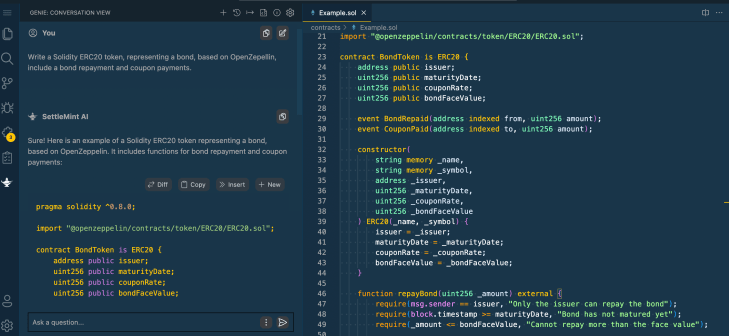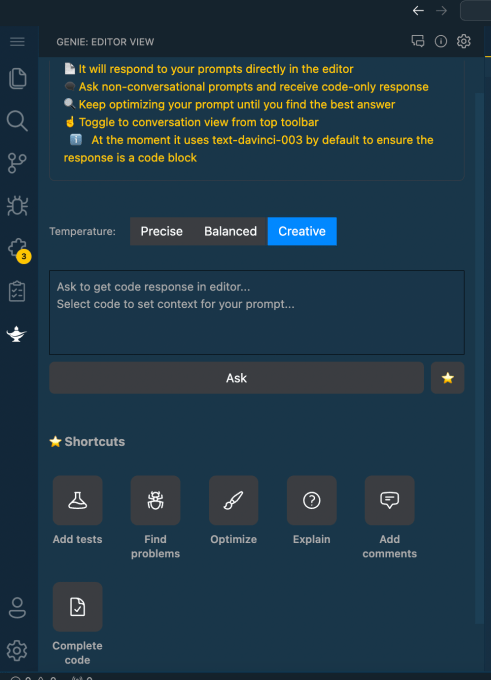SettleMint’s AI assistant aims to help web3 developers write better smart contracts


The way artificial intelligence can write software has already prompted many companies to introduce code-generating products, so it’s no surprise that SettleMint, a low-code blockchain programming tool for enterprises, recently added an AI assistant to its platform.
The AI assistant, which arrived about nine months after SettleMint announced its 16 million euro Series A funding round, promises to help developers create smart contracts, integrate data, and enhance quality assurance (QA) testing.
Despite a climate where digital currency prices have nosedived, the seven-year-old Belgium company is seeing steady user growth as more enterprises are recognizing the benefits of blockchain technology but lack the technical skills to bring their ideas to fruition.
In a survey done by the programmer Q&A site Stack Overflow, only 1% of the respondents reported having done extensive work in Solidity, the programming language used to write smart contracts, which are self-executing digital contracts built on blockchains, normally Ethereum.
SettleMint didn’t create the AI assistant to replace humans, said Roderik van der Veer, co-founder and CTO at SettleMint. The AI could help draft smart contracts, but its real value is explaining what each line of code does.
“If you understand a piece of code, you know where you get it wrong,” said van der Veer. “So instead of having to look at the screen and trying to Google whatever you see, and processing all [the information on] the internet in your mind and [use] your Google skills to form a conclusion of what could be wrong, it does it for you.”
While the AI assistant can suggest modifications to avoid vulnerabilities, the code won’t be bug-free, said van der Veer. Technical audits are still necessary, especially given the complexity of blockchain systems. But having SettleMint as the first layer of screening means auditors can spend more time on the “non-trivial” parts of the code to debug, the founder suggested.
SettleMint is training the AI assistant mostly on OpenAI’s GPT-4 and supplying it with up-to-date information on blockchain development, which is transforming rapidly with frequent technical upgrades.

Product screenshot of SettleMint’s new AI assistant. Image: SettleMint
The “crypto winter” hasn’t had an adverse impact on SettleMint, which has been “growing quite a bit” in lead generation and signed contracts with sales multiplying 3-4x this year, according to van der Veer. Changing customer behavior also reflects a maturing of the enterprise blockchain space, as its users went from mostly “small teams within companies doing a specific project” to much larger groups undergoing “huge internal training.”
Companies are also using smart contracts for different purposes in crypto’s market downturn. NFT use cases, observed van der Veer, are moving away from collectibles towards practical use cases such as ticketing and guarantees as proof of ownership.
With offices in Leuven, Dubai, New Delhi, Singapore and Tokyo, SettleMint is pushing steadily into Asia with funding from the Japanese electronics giant Fujitsu, while it sees “a lot of growth” in the Middle East.


